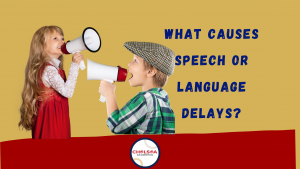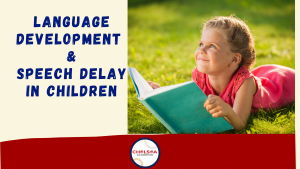
HOW SPEECH AND LANGUAGE DIFFER?
- Speech is the verbal expression of language and includes articulation (the way we form sounds and words).
- Language is giving and getting information. It’s understanding and being understood through communication — verbal, nonverbal, and written.
WHAT ARE SPEECH OR LANGUAGE DELAY?
Speech and language problems differ, though they are inter-related. For example:
- A child with a language delay might say words well but only be able to put two words together.
- A child with a speech delay might use words and phrases to express ideas but be hard to understand.
WHAT ARE SOME SIGNS OF SPEECH OR LANGUAGE DELAY?
A baby who doesn’t respond to sound or vocalize should be checked by a doctor. But often, it’s hard for parents to know if their child is taking a bit longer to reach a speech or language milestone, or if there’s a problem.
Here are some things to watch for. Call your doctor if your child:
- by 12 months: isn’t using gestures, such as pointing or waving bye-bye
- by 18 months: prefers gestures over vocalizations to communicate
- by 18 months: has trouble imitating sounds
- has trouble understanding simple verbal requests
- by 2 years: can only imitate speech or actions and doesn’t produce words or phrases spontaneously
- by 2 years: says only some sounds or words repeatedly and can’t use oral language to communicate more than their immediate needs
- by 2 years: can’t follow simple directions
- by 2 years: has an unusual tone of voice (such as raspy or nasal sounding)



